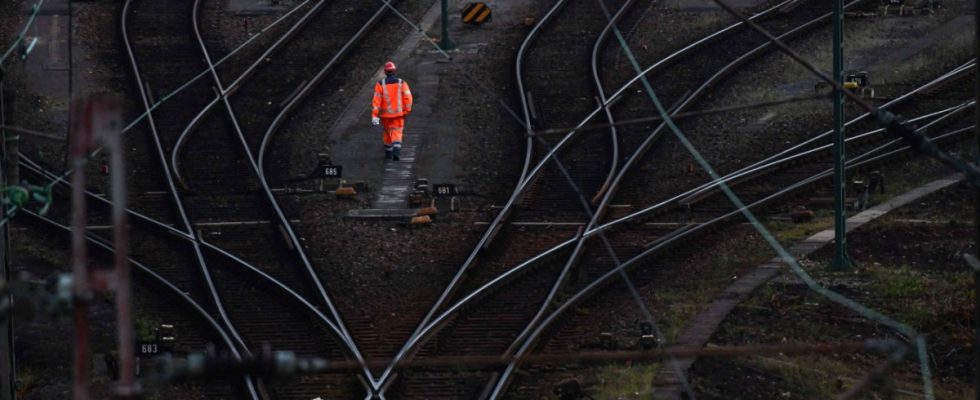The largest railway construction site in the country is not far away. The track wants to let the European Football Championship in Germany end undisturbed, then it starts. On the morning of July 15th, one of the busiest railway lines will be closed. The route of the 70 kilometer long Riedbahn between Frankfurt and Mannheim is so dilapidated that it needs to be renovated over a period of five months. And that is just the beginning. A total of 39 additional main routes are to be thoroughly modernized by 2030, costing many billions of euros. The chronic delays should come to an end.
The only problem is: despite the upcoming large-scale construction work, which must be thoroughly planned, the financing has still not been fully clarified. Even after the traffic light coalition reached an agreement in the dispute over the federal budget, it is uncertain how quickly the cash injection that has now been announced will come. And when the remaining, missing funds will flow. The traffic light wanted to raise 40 billion euros in the next few years in addition to the rail budget already planned so that the railway, which had been neglected for decades, can finally be completely renovated.
Shares in Post and Telekom are to be sold
Some of the additional funds were already secure before the Federal Constitutional Court overturned parts of the climate and transformation fund. Now, after a lot of back and forth, another 20 billion euros are to flow. The federal government wants to increase the equity of the state-owned company Deutsche Bahn by this amount. This should be achieved through the sale of federal shares in Deutsche Telekom and Deutsche Post.
However, such billion-dollar deals do not work overnight; they can take months, if not years. The train can’t wait that long. Large construction projects must be planned well in advance, including the many buses that will have to replace train services on closed routes. And the construction companies cannot find staff and machines overnight.
It is said from the railways that the 20 billion euros in additional equity capital must be secured quickly. We need to have clarity by March 2024 at the latest, i.e. within three months. Otherwise there would be a risk that planning and construction projects would have to be stopped. An early increase in equity is the prerequisite for getting through the next two years well.
But what happens next? Martin Burkert, deputy head of the supervisory board and chairman of the railway union EVG, calculates that the necessary funds for the general renovation were still eleven billion euros short. These funds have already been planned; this affects projects from 2026 onwards. Without this money, the rail network cannot be completely repaired and modernized, says Burkert. Then you either have to make compromises on the 40 main routes or on the regional rail networks.
If the traffic light fails to solve this problem, then the next federal government will have to take action. The CDU/CSU can prepare for this if the Union wins the next federal election. CDU boss Friedrich Merz has already mentioned the sale of the railway subsidiary Schenker in order to have more money for rail. Schenker is an international transport and logistics group worth several billion euros.
A sale of Schenker is almost a done deal. But the proceeds have actually been planned for a long time: for debt reduction at the state-owned railway company. According to information from the railway supervisory board, there is no alternative to this. If the debt burden is not reduced, the state-owned company will be poorly valued on the financial markets and will have to pay higher interest rates on its many loans. The Union would have to come up with something different if the Union were to be part of the next federal government or even lead it.

